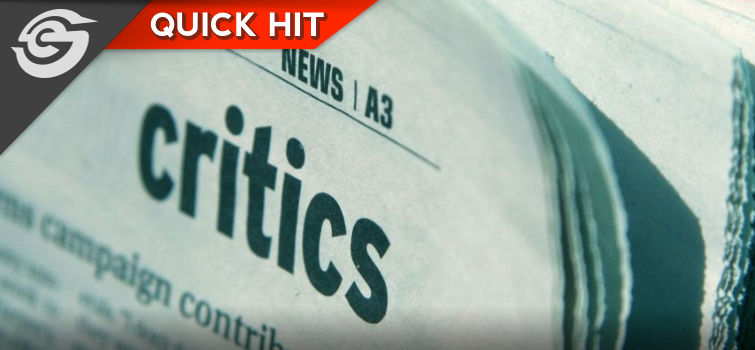Quick Hit: Is criticism detrimental to local esports?
“Stop complaining. Can’t you just be happy about what we’re doing? Why the hate? We’re doing our best and you’re just trying to break everything down. Try to be more positive about our efforts.†All these things and variations on them are things many of you have probably seen on Twitter being uttered in relation to South African esports. How dare anyone criticize anyone or anything in local esports? The sheer nerve!
It’s all good. No. It isn’t.
I’ve often seen people within local esports decrying any form of criticism. I’m not being specific here either. Tournament organizers have said it. Players, teams, and MGOs. Fans trying to support their favourite players. I’ve repeatedly seen this perception that criticism is somehow detrimental to local esports. Criticism is the enemy and needs to be stamped out, lest it spread and tear the industry down. Of course, endless complaining with little said of value is just white noise and is helpful to nobody. It happens all too often on the internet. Constructive criticism, however, should never be shouted down. It needs to be considered and used for positive progression. Routinely this isn’t the case. In today’s social media landscape it seems in every sphere people are too quick to dismiss opinions that don’t back up their own subjective point of view as mere hate.
An ear for progress
If enough people are saying something, it’s maybe a point worth listening to. Constructive criticism by fan or viewer feedback needs to be taken into account. The work of investigative journalists often helps to regulate the space against unscrupulous operators. By its very nature, this is also a form of criticism. It’s essential. The criticism of broadcast talent helps give viewers context and create a narrative, even if it doesn’t leave players feeling warm and fuzzy inside. Criticism is never nice to listen to, whoever you are. It is however an essential piece of the puzzle in helping move things forward in local esports. Even if it hurts sometimes. Progress doesn’t come without pain.
Header image courtesy of The Paris Review.





